A new track surfacing online with the unmistakable vocal stylings of Justin Bieber has ignited social media, but not for the usual celebratory reasons. This song, featuring lyrics that mention being at a “Diddy party,” has gone viral, prompting widespread speculation about its authenticity and raising significant questions about AI-generated content.
The song initially appeared across platforms like TikTok, X (formerly Twitter), and YouTube in April, but its popularity surged following the recent legal issues surrounding rapper Sean “Diddy” Combs. Listeners were immediately struck by the Bieber-esque vocals and the provocative lyrics, which include lines like, “Lost myself at a Diddy party/Didn’t know that’s how it’d go/I was in it for a new Ferrari/But it cost me way more than my soul.” Another lyric in the purported Justin Bieber song states, “Signed a paper so he never has to ever say sorry.”
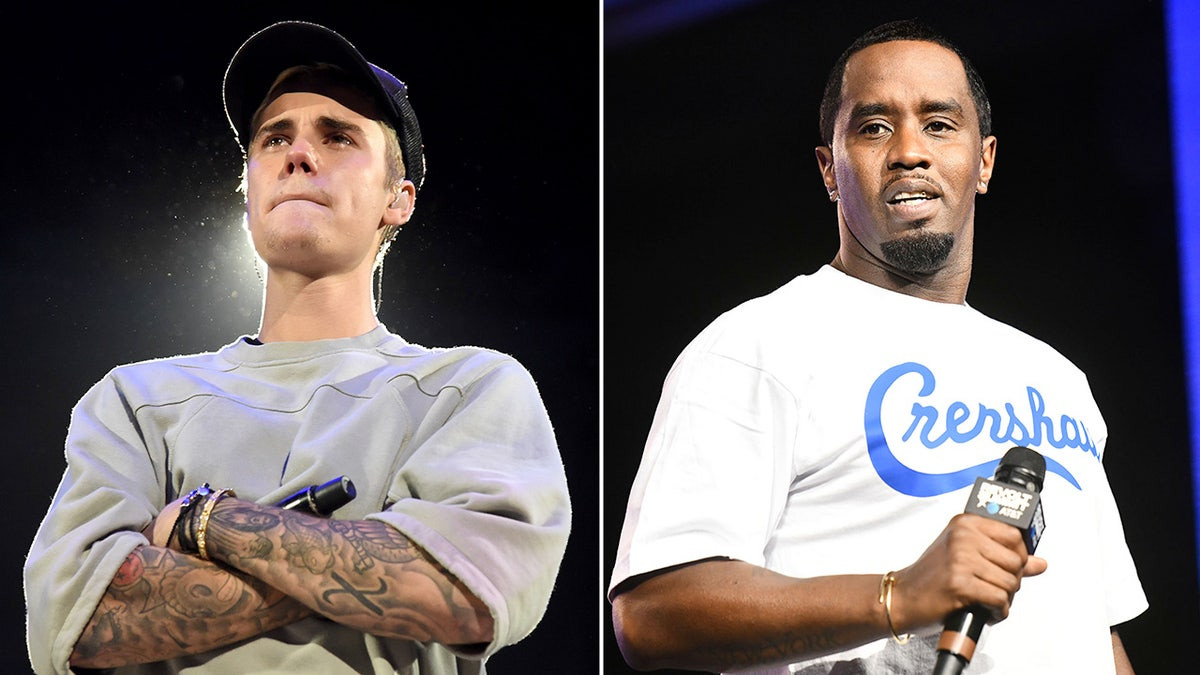 Side by side photos of Justin Bieber and Sean Combs, sparking discussions about a viral song and AI deepfakes
Side by side photos of Justin Bieber and Sean Combs, sparking discussions about a viral song and AI deepfakes
While the song sounds convincingly like it could be a new release from Justin Bieber, with lyrics referencing a “Diddy party” and the cost of fame, experts suggest it’s likely AI-generated. (Getty Images)
The controversial lyrics and timing have fueled intense debate, particularly given resurfaced clips showing Diddy advising a young Justin Bieber against discussing certain private matters. However, despite the buzz, representatives for Justin Bieber have not issued any statement regarding the track. This silence, coupled with expert analysis, strongly suggests that the song is not a genuine release but rather a product of artificial intelligence or sophisticated digital music tools.
AI specialist Marva Bailer explained to Fox News Digital why this Justin Bieber “Diddy party” song is likely AI-generated. “The reason why this is generated is because it is not something that’s being publicized by the artist. And when we say ‘AI-generated,’ that can mean a lot of things. And so AI actually trains on the voice and what could be going on. It could be an AI tool, or it could be an actual digital tool. These digital music tools exist. What makes it really getting this attention is the idea of AI because it’s happening so quickly and it looks so real, and so everyone is like, it must be someone that’s using something from AI to make it look this real.”
WATCH: AI EXPERT EXPLAINS WHY JUSTIN BIEBER WOULDN’T ADDRESS RUMORED FAKE SONG ABOUT DIDDY
 Video player showcasing an AI expert discussing why Justin Bieber might ignore a fake AI song about Diddy Video
Video player showcasing an AI expert discussing why Justin Bieber might ignore a fake AI song about Diddy Video
Bailer further elaborated on the typical artist rollout for new music, noting the absence of standard promotional activities for this supposed Justin Bieber song. “Part of the experience of releasing new material is the pre- and post-part of the experience and that digital engagement. So right away we know that this is not real if the artist is not excited about it and hasn’t told us about it. We like surprises, and you see a lot of gamification to find out what’s in the vault, and what’s the new song going to be, and what’s the hidden track. We haven’t seen this with this scenario, and that’s why the fans are saying this is not my Justin Bieber.”
Rob Rosenberg, founder of Telluride Legal Strategies, echoed this sentiment, pointing out the suspicious timing of the song’s emergence. “It’s very difficult to tell, but I think the fact that it seemed very on point and topical, it almost felt too coincidental that it would show up,” Rosenberg stated, highlighting the unlikely scenario of such a timely song being a genuine, unannounced release.
 Expert analysis suggests the viral Justin Bieber song is likely AI-generated due to various factors
Expert analysis suggests the viral Justin Bieber song is likely AI-generated due to various factors
Experts cite Justin Bieber’s lack of promotion and the song’s topical nature as reasons to believe it’s an AI deepfake. (Kevin Winter/Getty Images)
Adding to the evidence, CBS News reported conducting AI audio detection tests on the track. These tests indicated that “multiple results indicated the audio, or at least parts of it, were likely AI-generated,” strengthening the argument against the song’s authenticity.
Pindrop, a voice authentication and security firm specializing in deepfake detection, also weighed in on the Justin Bieber “lost myself at a Diddy party” song. Sarosh Shahbuddin, senior director of product at Pindrop, explained the technical discrepancies that betray AI-generated vocals. “When we speak, our speech is in a specific frequency range. And what we’ve noticed is that these AI generation systems, they sound really good, but they actually don’t match the way we speak to the exact frequencies like a normal human being. And so we’re able to detect these sort of like frequency variability in AI-generated speaking,” Shahbuddin detailed, emphasizing the subtle but detectable differences in frequency patterns.
Elie Khoury, Ph.D. and VP of research at Pindrop, further broke down the indicators of AI-generated audio into three categories: “acoustic, phonetic and temporal inconsistency, and the ‘digital fingerprint’ of the model that generated the AI.” These digital artifacts are telltale signs that distinguish AI-generated content from genuine human vocals.
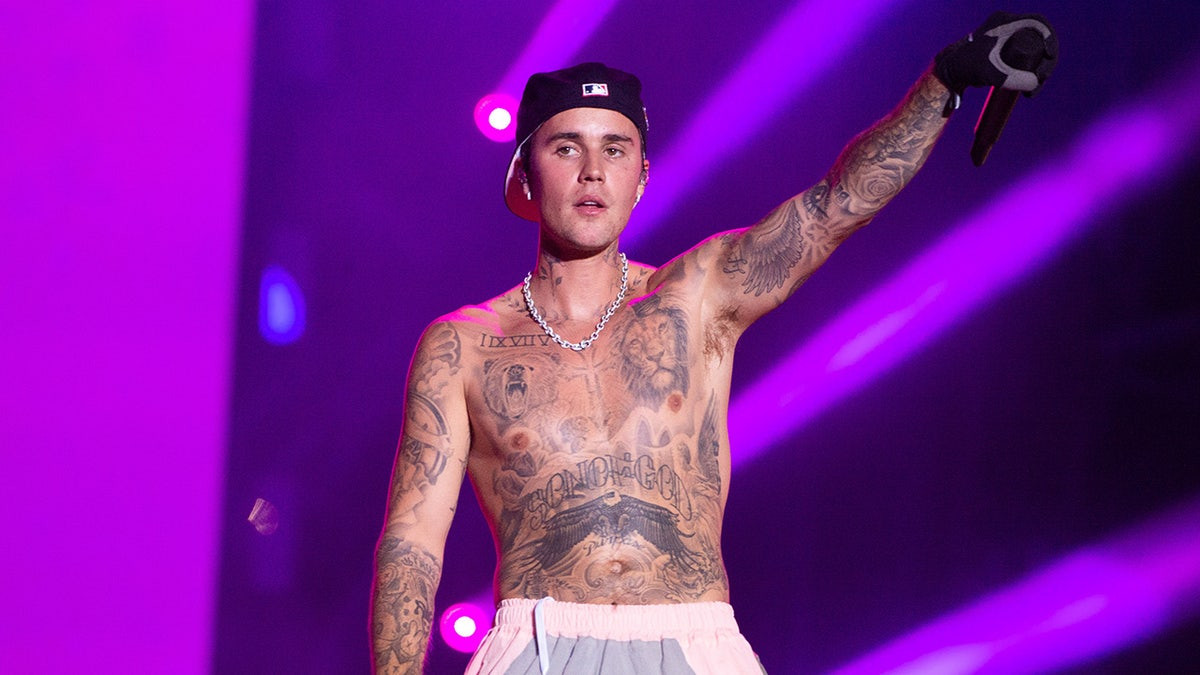 Close-up of Justin Bieber performing onstage, highlighting the vocal authenticity debate
Close-up of Justin Bieber performing onstage, highlighting the vocal authenticity debate
Experts at Pindrop point to “digital artifacts” in the Bieber song as indicators of AI generation. (Joseph Okpako/WireImage)
CLICK HERE TO SIGN UP FOR THE ENTERTAINMENT NEWSLETTER
Shahbuddin also noted the increasing use of Pindrop’s Pindrop Pulse tool to combat the rise of deepfakes on social media. The company reports a significant surge in deepfake checks, processing around 10,000 “suspicious files” monthly. This growing volume underscores the escalating concern surrounding AI-generated misinformation and its potential impact.
WATCH: LEGAL EXPERT EXPLAINS WHY PEOPLE NEED TO BE WARY OF DEEPFAKES AS DIDDY TRIAL GEARS UP
 Video still of a legal expert warning about the dangers of deepfakes, relevant to the Diddy situation Video
Video still of a legal expert warning about the dangers of deepfakes, relevant to the Diddy situation Video
The proliferation of accessible AI tools further exacerbates the issue. “There’s very little that can be done to stop the use of those models. It’s crazy,” Shahbuddin commented, highlighting the challenge in controlling the spread and creation of deepfakes. The ease with which these technologies can be used raises complex questions about regulation and content moderation.
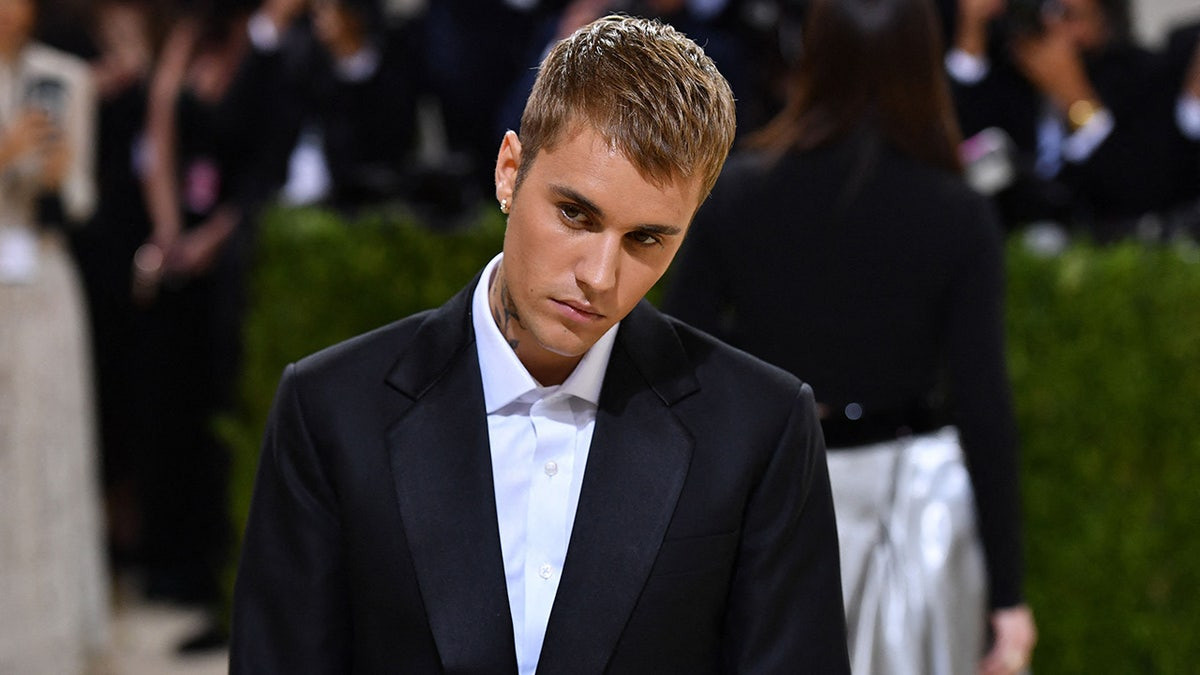 Justin Bieber at the Met Gala, pondering the implications of AI deepfakes on artists and the music industry
Justin Bieber at the Met Gala, pondering the implications of AI deepfakes on artists and the music industry
Pindrop experts report a “massive uptick” in deepfake detection requests, reflecting growing public concern. (ANGELA WEISS/AFP via Getty Images)
LAWYER FOR ‘DIDDY’ ACCUSER HAS ‘NO DOUBT’ CELEBRITY FRIENDS ARE ‘SCRUBBING’ SOCIAL MEDIA AFTER INDICTMENT
Beyond the immediate concerns about the Justin Bieber “Diddy party” song, there are broader financial implications for artists and the music industry. Marva Bailer pointed out the royalty issues arising from AI-generated music on platforms like TikTok. “The [point] of TikTok is, you make your fun little creations, and you put cartoons and talking heads and fun new creations, and people are using this as the background music for these new creations. And so it keeps going on and on and on. And normally, if that was a licensed song, every time one of those creations would play, you would get royalties. And then this whole world, nobody’s getting any royalties,” Bailer explained, emphasizing the potential revenue loss for artists due to unlicensed AI-generated tracks.
Shahbuddin added that social media platforms may need to differentiate between music-related deepfakes and other types due to these royalty and licensing implications. “These social platforms are going to start to see music-related deepfakes as a very different category of media versus political or other types of deepfakes,” he stated. “And the reason is is that there are labels and sort of organizations that own the licenses to these singers and artists, and that impacts the way that royalty is distributed to these artists. So these singing deepfakes are actually a new class where there’s a significant revenue impact. And I think the platforms like YouTube are going to start to take this far more seriously than non-singing or music-related deepfakes.” He further highlighted the potential for fraudulent monetization if AI-generated songs are uploaded to streaming services as original works.
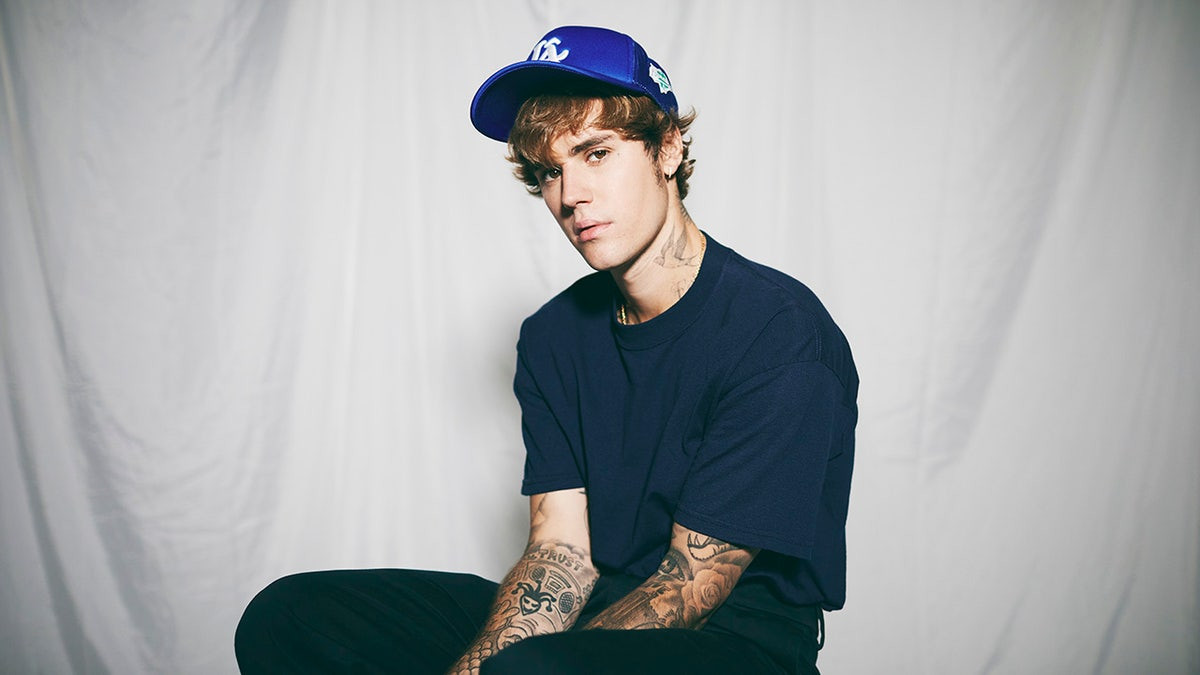 Justin Bieber’s silence on the viral AI song is noted amidst deepfake concerns
Justin Bieber’s silence on the viral AI song is noted amidst deepfake concerns
Justin Bieber has not publicly addressed the viral song or the AI deepfake rumors surrounding it. (Mike Rosenthal/Getty Images)
“There’s very little that can be done to stop the use of those models. It’s crazy,” Shahbuddin reiterated, underscoring the challenging landscape for artists and rights holders.
LIKE WHAT YOU’RE READING? CLICK HERE FOR MORE ENTERTAINMENT NEWS
Despite the financial stakes and brand implications, Bailer suggests Justin Bieber’s silence on the “lost myself at a Diddy party” song is strategic. “Bieber is not addressing it because he has millions of followers on Instagram, and he even [reportedly] gets paid close to $2 million to do a post on Instagram,” Bailer explained. “So if his PR team addressed every unauthorized remake of his music, that would be all that they would be doing. And by the way, he just had a child three months ago, so he’s busy with his family. Him and his PR team, they don’t want to put unwanted attention on people that are trying to harm his brand. And you also could argue, are they harming his brand?” Addressing every AI-generated song would be a constant and potentially counterproductive effort.
WATCH: VOICE AUTHENTICATION EXPERTS EXPLAIN WHY AI DEEPFAKES WILL FINANCIALLY IMPACT MUSICIANS
 Video interview with voice authentication experts discussing the financial impact of AI deepfakes on musicians Video
Video interview with voice authentication experts discussing the financial impact of AI deepfakes on musicians Video
The emergence of this viral AI-generated song coincides with increased scrutiny of Justin Bieber’s past associations with Sean “Diddy” Combs, particularly in light of recent allegations against Combs. Resurfaced videos and fan discussions are examining their past interactions under a new lens.
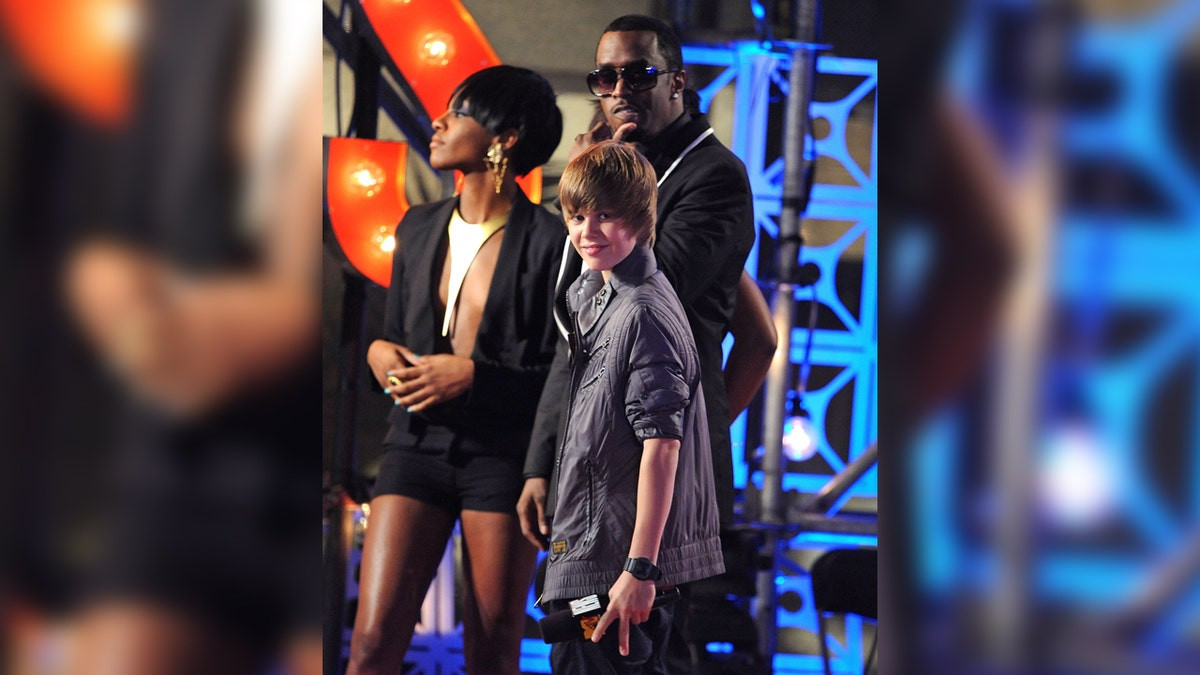 Young Justin Bieber with Sean Combs, highlighting their past relationship now under scrutiny
Young Justin Bieber with Sean Combs, highlighting their past relationship now under scrutiny
Justin Bieber’s early career, launched in 2009, saw interactions with Sean Combs that are now being re-examined. (Getty Images)
As investigations into Sean Combs continue and potentially move towards trial, legal expert Rob Rosenberg cautions against believing all emerging media. “I actually think we’re going to see a lot more new information come to light, and I think at the same time that’s happening, there’s going to be new disinformation,” he warned. “There’s going to be deepfakes, people who are exercising all their creative juices and creating images and video and stories, which is why people are really going to have to scrutinize the things that they see and they find to make sure they’re not just being messed around with.” In the age of AI, critical media consumption and verification are more important than ever, especially when dealing with sensitive and evolving news stories.
CLICK HERE TO GET THE FOX NEWS APP
